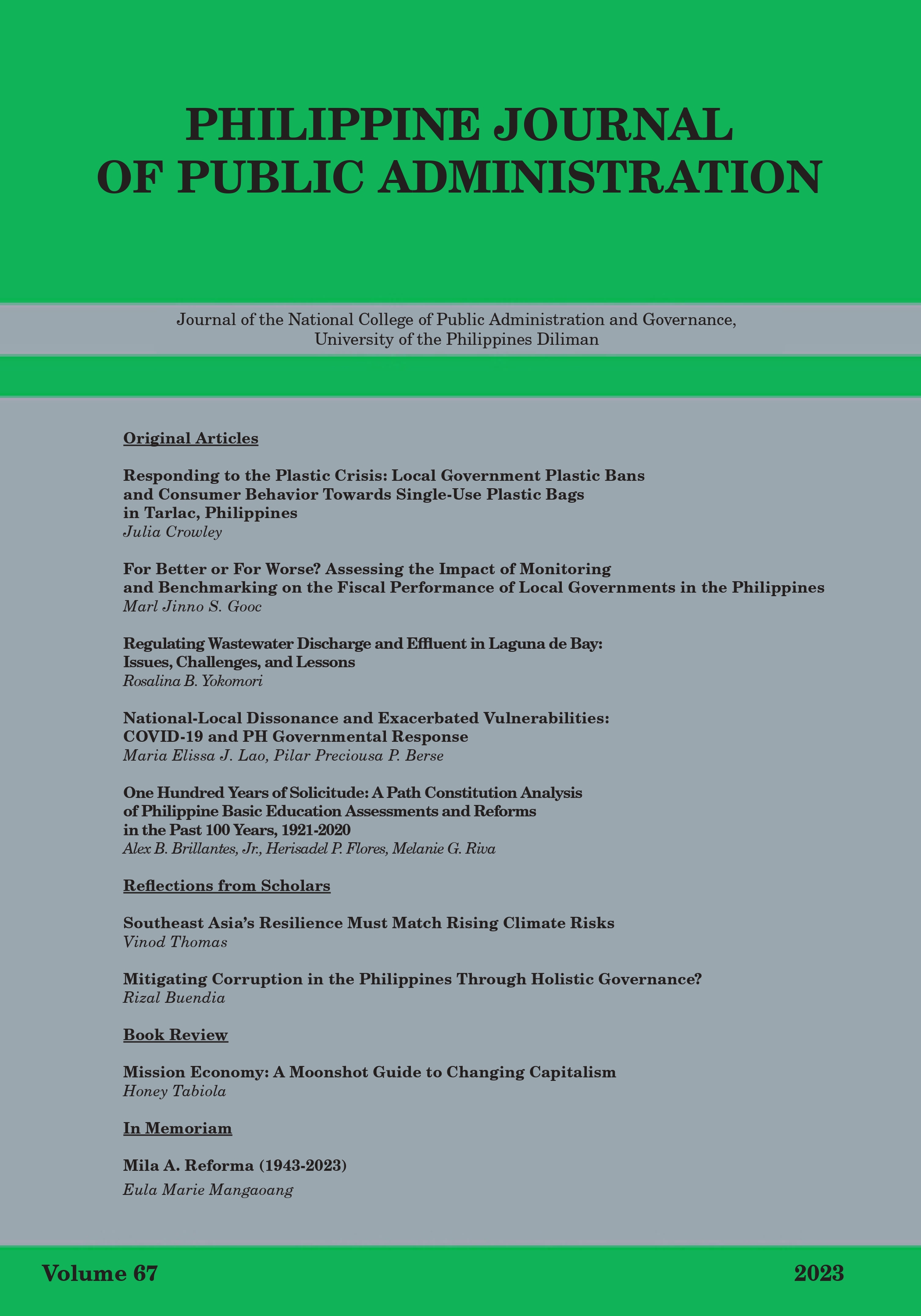For Better or For Worse? Assessing the Impact of Monitoring and Benchmarking on the Fiscal Performance of Local Governments in the Philippines
Abstract
Financial monitoring and benchmarking systems have become prominent tools for various stakeholders to assess the fiscal well-being of local governments. Much like other performance-based initiatives, they are grounded on the fundamental assumption that they would improve organizational performance. However, past literature suggests that such promise is not always achieved, with some arguing that these efforts could even lead to dysfunctional outcomes. This study looks into how the introduction of a monitoring and benchmarking initiative affected the fiscal performance of local governments in the Philippines. Using an interrupted time-series design, it analyzes whether the changes in 14 benchmarked indicators at the provincial, city, and municipal levels are signs of improvement or isomorphism. The results show that, in aggregate, the evidence of improvement was more dominant across all three government levels. Specifically, the study finds that the intervention helped ease the local units' dependency on intergovernmental fiscal transfers. Although not as evident, considerable signs of convergence were also uncovered—a majority of which are indicative of negative isomorphism. The findings of this study seek to broaden the discussion on the impact of performance management regimes on local governments, particularly among developing countries.

This work is licensed under a Creative Commons Attribution 4.0 International License.



